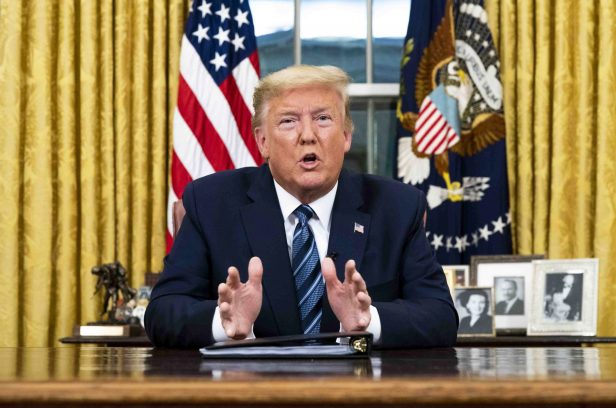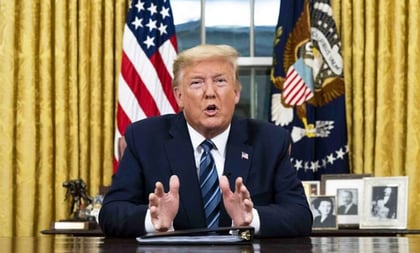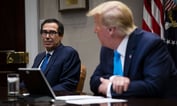 President Donald Trump speaks during a televised address in the Oval Office of the White House about the coronavirus. (Photo: Doug Mills/The New York Times/Bloomberg)
President Donald Trump speaks during a televised address in the Oval Office of the White House about the coronavirus. (Photo: Doug Mills/The New York Times/Bloomberg)
President Donald Trump announced a series of executive actions on Saturday to provide expanded unemployment benefits, a temporary payroll tax deferral, eviction protection and student-loan relief, as the pandemic continues to thwart an economic recovery.
Trump’s move signals a possible collapse in negotiations with congressional Democrats over an additional coronavirus relief package, with the two sides trillions of dollars apart on key issues, including aid to state governments and the amount of supplementary unemployment benefits.
“What Democrats primarily want is bailout money — has nothing to do with the China virus,” Trump said during a news conference at his golf club in Bedminster, New Jersey. “We’re not willing to do that.”
Trump said his action authorizes Treasury to allow companies to defer payroll taxes for Americans making less than $100,000 a year. He said if he is re-elected in November, he may extend the deferral and terminate the tax.
The president said another order would provide $400 a week in jobless benefits — down from $600 weekly that had been provided through last week — and states would be responsible for covering 25% of the cost.









 August 08, 2020 at 05:35 PM
August 08, 2020 at 05:35 PM











